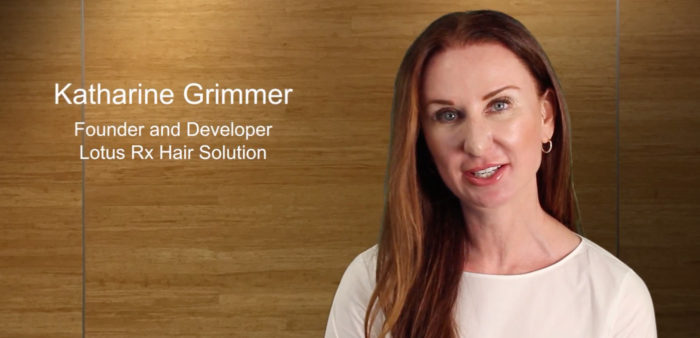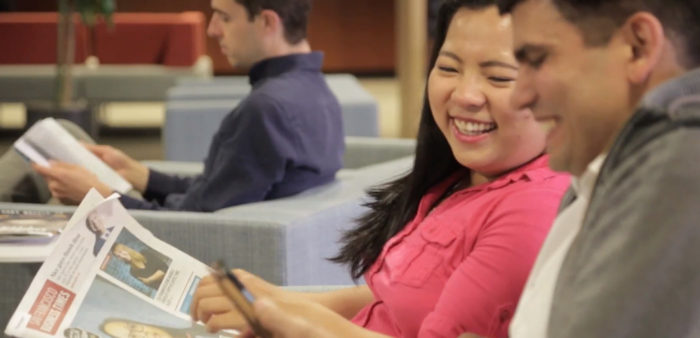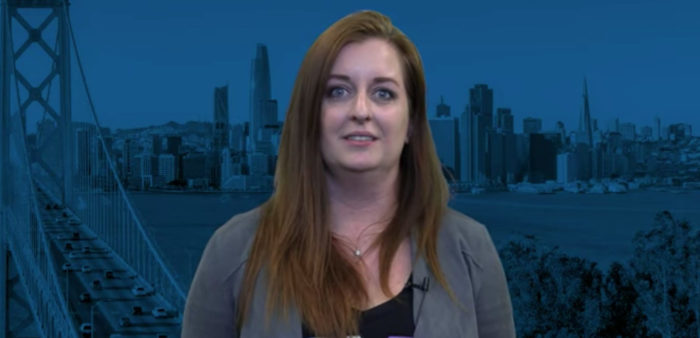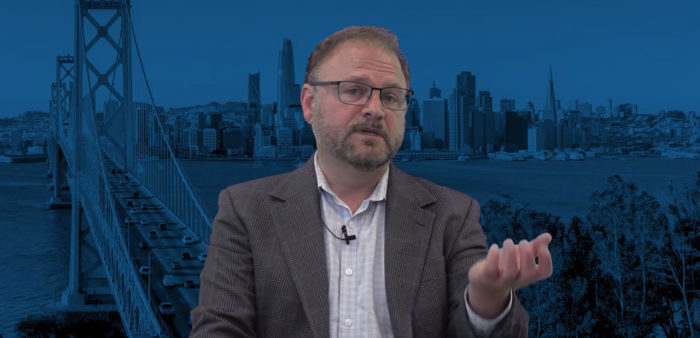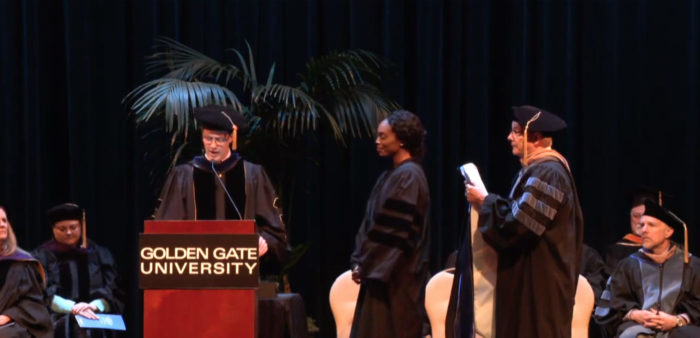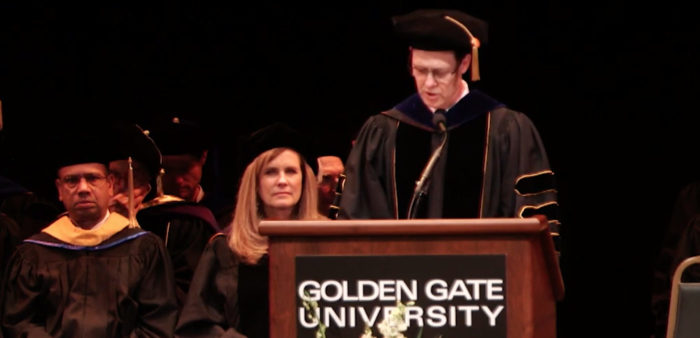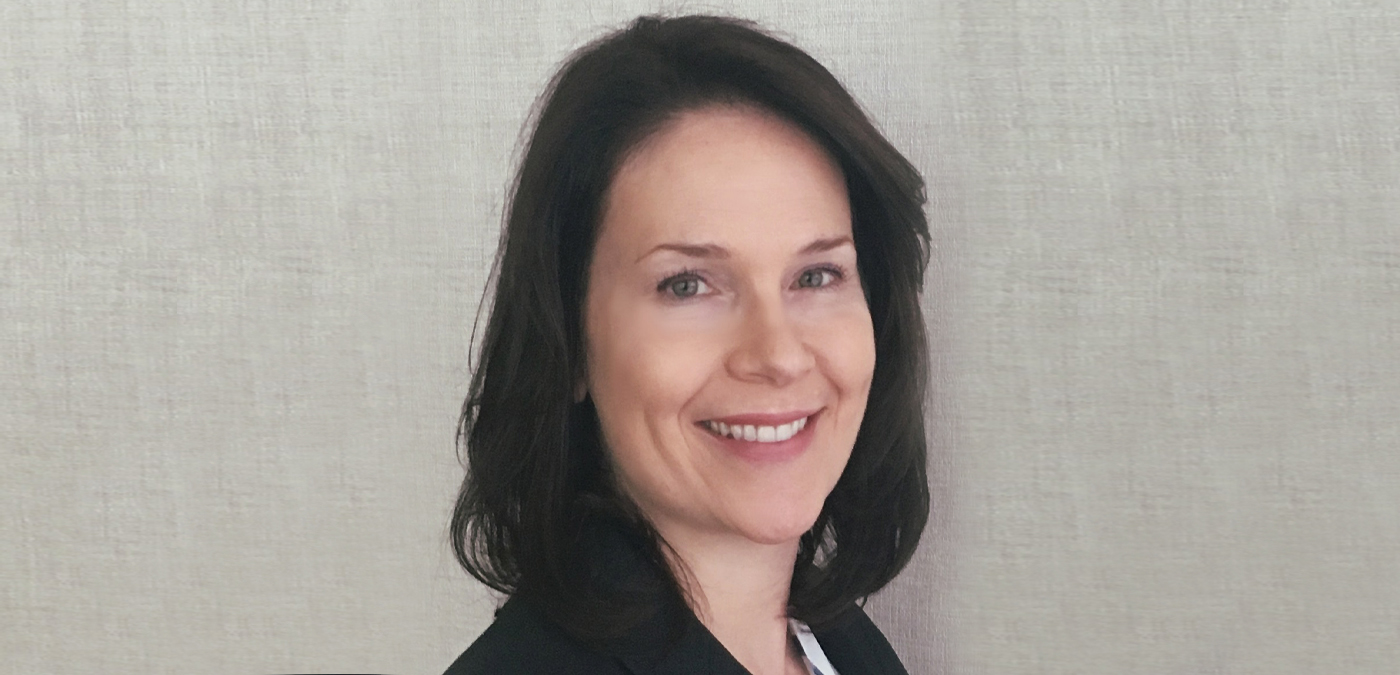
Grad Uses Counseling Skills to Help Organizations Lead and Change
Nadia Kwalick Evans won the 2020 Outstanding Student Award in the Master of Arts in Counseling Psychology. She brought business experience to her coursework and honed communication skills she leverages in the corporate world.
Nadia Kwalick Evans earned not one but two master’s degrees from GGU, in Counseling Psychology and in Industrial-Organizational (I/O) Psychology. She earned her MA in I/O Psychology in 2008, during her 15-year tenure at PG&E where she started as a trainer and earned several promotions, finally managing a portfolio of change management projects and directing a team. Her projects included training programs, process improvements, reorganizations, and software implementations that transformed the way business was done.
“At the beginning of my career,” said Nadia, “I didn’t even know change management was a thing. I knew there had to be a better way to introduce new systems and processes into the business, so I decided to figure out how to do that.”
Change Management
Nadia’s work at PG&E focused on three levels of change: organizational, group/team, and individual. As Nadia led more change management projects, she discovered that achieving collective change depended on each individual making a decision to adopt new ways of working. She became increasingly interested in what led an individual to that decision, and thought the MA in Counseling Psychology degree would help her better understand and facilitate this process.
At GGU, Nadia found that the approaches, skills, and techniques she gained were directly applicable to her career.
MA in Counseling Psychology
“My counseling degree has helped me enhance my professional career in many ways,” she reflected. “I have a deeper understanding of people’s motivations and perspectives, how to better lead teams, how to listen more deeply, how to better navigate organizational dynamics, and even self-management in conflict and crisis which are core skills I developed during my traineeship/practicum.”
Mid-way through her program, a reduction in force at PG&E allowed Nadia to secure a daytime school-based counseling traineeship with the USF Center for Child & Family Development.
“My professors really helped me think through this crossroads,” said Nadia. “They were always willing to spend extra time outside of class to mentor and help me think through my next steps, both from an academic as well as a career perspective. That supportive environment led to my learning new things I hadn’t realized I was capable of.”
In her traineeship, through the rigor of structured practical application, she learned more about mechanisms of individual change. An important skill she honed is seeing the world from her clients’ perspective and joining with them in what is called in clinical psychology “unconditional positive regard.” In the business world, this concept roughly translates to “assume positive intent.” Nadia believes these skills have helped her become a better leader and colleague.
Counseling Psychology Meets Organizational Development
“I’ve gotten feedback that I’m able to meet people where they are, tune into their feelings, and adapt my style to theirs. That has influenced how I communicate with people at work. You learn those skills formally in your classes and apply them in practicum.”
During her traineeship at USF, Nadia successfully proposed a mindfulness curriculum for the school where she was counseling, and taught mindfulness to several classes with the goal of bringing additional skills to students in support of their growth and learning. USF then invited her to come teach the following year’s trainee cohort mindfulness techniques.
New Opportunities
Today, Nadia works at Stanford Health Care as an Organizational Development/Program Manager and Talent Architect. At Stanford, she partnered with colleagues to design and implement an employee engagement and change leadership program to support leaders transitioning to a new hospital. She’s also been contributing to a new technology implementation and was asked to lead the design of leadership development efforts in support of navigating the Covid-19 crisis. She is additionally pursuing a coaching certification. The work Nadia does is complex but her goals sound deceptively simple.
“I try to make work better for people. I’ve been told that I have a broad range of skills—I really see this as taking every opportunity I have to add value where I can and enjoying my work to the fullest. I try to use my skills to make life a little bit better for whoever it is that I’m interacting with.”
What led you to choose GGU?
The counseling degree appealed to me as some of my cohorts from the I/O degree had done a double major in counseling, and I saw applicability to the business world I have been working in for quite some time. From a practical perspective, I live in downtown San Francisco and had attended GGU in the past, so I was familiar with the campus and faculty and had wonderful memories of both students and professors.
How do you think your education at GGU will help you succeed in your career?
I am a more effective leader—and teammate!—thanks to the communication skills I gained and my enhanced ability to see the world from another person’s perspective. I have found that everything I learned in this degree has applicability not only to my career journey, but also life in general.
What are your career ambitions for the future?
My goals are to use and develop my understanding of organizational and individual behavior, with the aim of enhancing people’s quality of life. My hope is to leave things better than I found them.
What advice do you have for prospective students?
GGU has really lived up to its promise of offering real-world, practical learning that you will apply right away. I worked with wonderful professors and I love that they bring their practical field experience to the learning process. These aren’t just professors reading books and talking theory. It’s literally the practical application that came through in every class I took. My professors also shared their perspectives to help me think through next steps in my career. My advice is to honor the commitments you make to yourself. Be disciplined about how you organize your time around classes and getting work done. For me it came down to setting goals – each week and for the term, prioritizing my time to balance work, school, home and social life. Finally: Find the support you need from others and stay focused on your goals.

